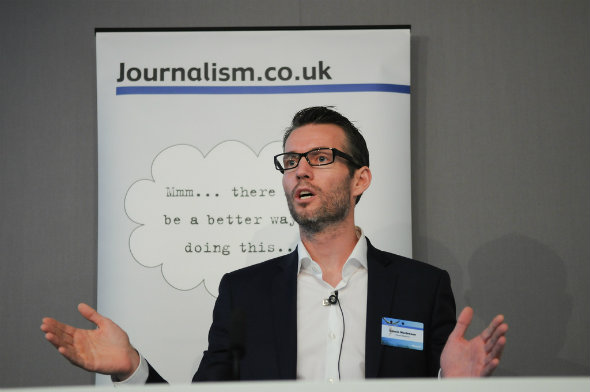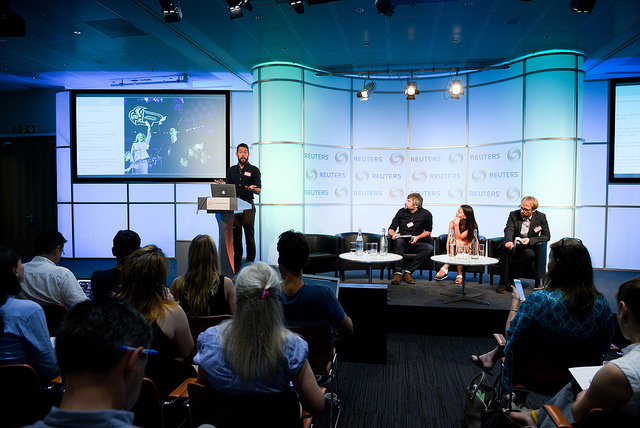
Panellists at news:rewired’s session on sustainable and profitable journalism argued whether a news organisation’s homepage is still relevant and useful in an age of social media linking.
Dennis Mortensen, Visual Revenue chief executive, told delegates at the conference the homepage is still very important as a channel, in the same vein as Twitter, Facebook and RSS feeds, but he argued it is undervalued. Mortensen said:
We look at our channels. Which channels are competing? How do I make the most of these channels? Some of these channels might be obvious, some might be ones to just try out. We take the content and we try to promote it. We analyse the impact of the channels.
The homepage might be a great opportunity for you and if you are not making the most of it you are leaving money on the table. The space on your homepage has an opportunity cost. If you’re not maximising the space you have there then you have to have a good reason for it.
Visual Revenue specialise in data analysis for publishers. They look at what types of content work, when the best time publish is and where on your homepage the content should go – if it should make it to the front page at all.
Mortensen added:
A story, say for example about Syria, might not be the best story to have in your ‘hero spot’ for revenue purposes but it might be an important story. It is not about comprising your editorial product but about being aware of the opportunity cost of publishing it.
John Barnes, managing director of the technology and digital division of Incisive Media strongly disagreed with Mortensen on the importance of the homepage and sees a future without them. He said:
I think going forward there will be no homepages or every page will be some sort of homepage. You want users that will engaged in the content and you want the related links to be reflective of what your users want. The elective model of discovery rather than the selective is somewhat dated.
Yahoo’s homepage has 4.4 billion page views of its homepage every month in the US alone and 65% of articles on the New York Times are accessed via the homepage, showing there is still some value in homepages, but this may not last.
Social media links go straight to an article page bypassing the homepage but Lucia Adams, digital development editor of the Times, said new forms of consumption bring back the format of the homepage. She said:
How do readers react to what is front of them? Readers will react differently to the homepage and an article page. On the iPad people will read a wider range of topics and more deeper. Websites are conceived for search engine optimisation not human experience. There’s a beauty in the serendipity of discovery via a frontpage.
Stephen Folwell, the Guardian’s business director, multimedia and brand extensions, sees a future with a more personalised homepage. He said:
At the Guardian we obsess about network front, sport front. There are bun fights about the type of content we put up there More video, Olympics, pictures etc. But we are increasingly thinking of article pages, and aiding discovery.
At the moment everyone is served the same homepage. You get an ad for Soulmates even if you’re not single. The front needs to become more relevant to the user.

